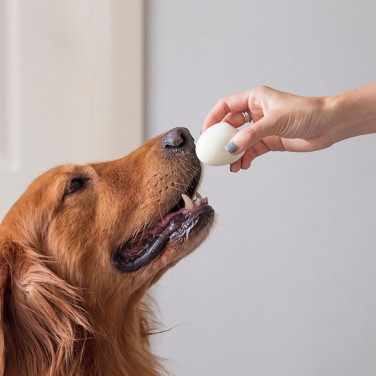FOOD
Can Dogs Eat Kale? Health Benefits and Risks of Feeding Kale to Dogs
페이지 정보
본문


Can dogs eat kale? YES!
Yes! Dogs can eat kale. Kale is a green vegetable that is rich in various nutrients and can be beneficial to your dog's health when consumed in moderation. Kale contains a variety of antioxidants, vitamins, and minerals. The abundant antioxidants in kale strengthen the immune system of dogs, help eliminate toxins, and protect cells. However, kale also contains oxalate, which can potentially impair thyroid function in dogs. Overconsumption of kale can lead to side effects, so please be cautious when feeding it to your dog.
Nutritional facts of kale for dogs

Feeding your dog kale can provide a range of benefits. Packed with vitamins K, A, and C, it can boost energy levels, support blood and muscle health, enhance the immune system, and potentially combat cancer and inflammatory diseases. Kale serves as a low-calorie treat that aids digestion, making it ideal for dogs prone to overeating or carrying extra weight.
Main nutritional benefits of kale for dogs
-
Antioxidants
Dogs need antioxidants to prevent oxidative stress. Antioxidants protect dogs' bodies from free radicals that are produced during everyday metabolism, exercise, and can also be caused by external factors. If toxins accumulate in the body, various diseases can occur. Antioxidants help remove these toxins and prevent several diseases.
-
Carotenoids
The three major carotenoids found in kale are lutein, zeaxanthin, and beta-carotene. Lutein and zeaxanthin are two nutrients that can promote eye and skin health. They also protect dogs from UV radiation, reduce skin inflammation, and slow down the aging process.
The benefits of beta-carotene in a dog’s body include improving eye health and cognitive function, strengthening the immune system, and has anti-cancer properties.
-
Chlorophyll
Chlorophyll, a plant pigment, has a chemical structure similar to hemoglobin. Hemoglobin is present in a dog's red blood cells and plays a role in transporting oxygen throughout the body. Chlorophyll's similarity to hemoglobin can help replenish red blood cells. Chlorophyll can also protect cells from damage, which helps reduce organ damage and prevent diseases such as cancer.
-
Vitamin C
Vitamin C plays a crucial role in many functions in a dog's body. It can support tissue, cartilage, bone, blood vessels, and dental health. It also aids in the absorption of nutrients like iron and calcium. Vitamin C also promotes the production of stress hormones, which can assist dogs in coping with stress.
How to safely serve kale to your dog

While dogs can consume a little bit of raw kale without any issues, it is recommended to slightly steam this leafy vegetable to reduce its effect on your dog’s thyroid hormone production. Always buy organic when it comes to the food you serve your pet and thoroughly wash them to rid all of the bacteria and pesticides on its surface. Then either chop them into small pieces to garnish their meal or choice of protein.
How much kale can I feed my dog?
It is recommended that all additional food or treats should be within 10% of the recommended daily calorie intake. Start with only a very small amount and feed up to a small to moderate-small amount of chopped kale to monitor and avoid any digestive symptoms. This leafy vegetable should be served plain and in moderation every other day.
Cautions to consider when feeding kale to dogs
While kale is not poisonous to a dog, it does come with some caveats to consider. The calcium oxalate content in kale can lead to the formation of kidney and bladder stones, causing health issues if consumed improperly and in excess. Isothiocyanates is a compound that aids in reducing the risk of cancer in dogs but in excess can cause digestive symptoms. You should always consult with your veterinarian before adding any new foods to your dog’s diet for the most accurate recommendation according to your pet’s breed, medical history, and needs.
Avoid feeding kale to dogs with a history of bladder stones or hypothyroidism
We recommend not feeding any kale to pets with a history of stones or hypothyroidism as the compounds found in kale such as calcium oxalate can increase the chance of bladder stone recurrence. Additionally, kale can impair thyroid function which would worsen the conditions of dogs with hypothyroidism.
Beware of food allergies
When introducing new food to your puppy, it is recommended to test for any potential allergies by giving a small portion and monitoring for allergic reactions. If your puppy displays any symptoms of intolerance, it is important to stop feeding and consult a veterinarian immediately.
Signs of an allergic reaction to look out for:
- Skin problems: hives, facial swelling, itchiness
- Digestive problems: vomiting and diarrhea
- Shortness of breath
Curious if you can give your dog other foods besides kale?

Does your dog also look up at you with those puppy dog eyes whenever you are snacking on something? You know foods like chocolates should not be shared with them but do you search the Internet every time if it’s okay to share a bite of whatever you are eating? The Buddydoc Food Dictionary provides information on hundreds of foods that we consume and informs you whether it is safe for them to consume and the nutritional benefits for your pet. If you're curious about other foods, try searching on Buddydoc!













